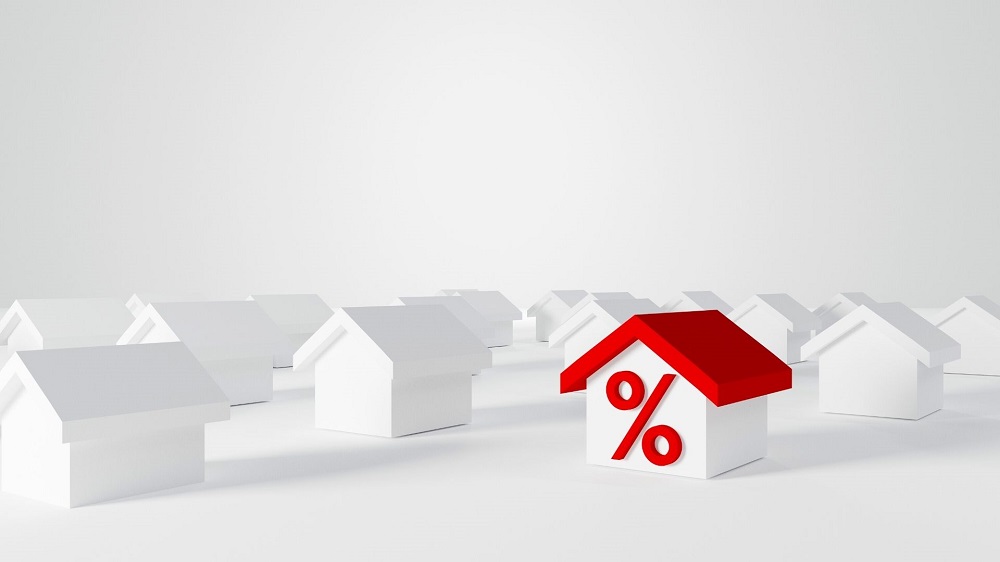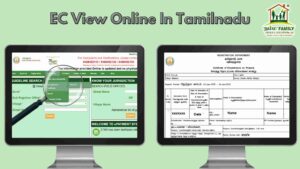
The Epic Details Between Freehold Premises and Leasehold Premises

- There are 2 varieties of property uses: “freehold” and “leasehold
- The phrases “freehold” and “leasehold” are often misunderstood by property consumers.
- Let’s have a glance at the variations between the two.
What are Freehold Premises and Leasehold Premises?
Freehold Property Meaning
- The owner of such a freehold property has the right to use it for whatever purpose he or she wants, as long as the restrictions in the area where the freehold is located are followed.
- Freehold premises are owned in perpetuity, and the owner has complete control over the structure (with the required municipal permissions).
- The owner of a freehold property can sell it without the approval of the state or others.
- The freehold property owner might leave it in his or her will, transfer it, gift it, or donate it.
- The owner’s heirs have the right to inherit freehold premises.
- The freehold property can be leased by the owner.
- The state’s approval is not required for the sale of a freehold property, and it necessitates substantially less paperwork.
- Furthermore, if one intends to sell such a property, it will not require any legal or government approval, resulting in less paperwork.
- Freehold premises assets are, understandably, more expensive than leasehold premises assets.
Leasehold Property Means
- A leasehold premises is a type of property term in which a buyer purchases the right to occupy a property for a specific period of time (30 to 99 years).
- In leasehold land, the authority (generally a government agency) retains the power of the land and leases it to builders for the development of residential developments.
- Anyone purchasing a residential flat will only possess it for the duration of the leasehold period.
- You have the right to live in a leasehold property for a set period of time if you have purchased it.
- The buyer does not own the property or the land on which it is built.
- Ground rent must be paid to the owner or leaseholder in the event of a leasehold property.
- When the lease period expires, the landowner reclaims ownership of the property.
- The majority of the leases are for a length of 99 years or less.
- The leasehold premises can be extended for up to 999 years.
- For individuals considering leasehold properties, the length of the lease is critical because it affects the property’s value.
- The buyer must quit the leasehold property at the end of the lease period, and the ownership is returned to the landowner.
Comparisons Between Freehold vs Leasehold,
Freehold premises | Leasehold premises |
The land belongs to the property owner.
| The state owns the land, which is leased to the owner for a set period of time. |
The term of ownership is indefinite.
| Owners must pay to extend the lease at the conclusion of the term. |
Transferring ownership does not necessitate state approval (except in certain especially some properties).
| Transferring ownership requires state approval (which can be sought at the land office). |
Freehold properties are easily financed by banks. | If the lease term is less than 30 years, most banks will not finance the property. |
Town planners have set a time limit for the event. | The typical lease term is 30, 60, 99, or 999 years. |
Here you are free to make any changes as you like. | To make any changes, you’ll need the owner’s permission. |
In perpetuity, you own the building and the ground it rests on. | You only have a lease with the freeholder or the landlord. ‘N’ number of years for the landlord to utilize the house/property. |
It is more expensive than leasehold property. | Compared to freehold property, the costs are lower. |
You are the one who is in charge of the upkeep. | Here, the landowner has the responsibility of maintenance. |
The majority of residential properties are freehold. | Leasehold properties include commercial properties and business guesthouses. |
Advantages of Freehold Property Premises
- Freehold property, as the name implies, entails complete autonomy.
- As a result, the property owner has entire control over the freehold premises and is not obligated to make any additional payments in the form of ground rents, service charges, or any other types of Land charges that may apply to leased properties.
- Ownership is complete, and owners have complete control over the building of their homes.
- Through the generations, it can be transferred.
- As a result, the owner knows exactly how much he paid for the property.
- A freehold premises also has no limitations on time, guests, or other factors.
- As a result, the owner is free to do anything he wants within his land without having to answer to anyone else.
- You don’t have to be concerned about the lease expiring because you own the property altogether.
- It’s to take care of the freeholder (often known as the landlord).
- There is no need for ground rent, service charges, or any other landlord fees.
Disadvantages of Freehold Property Premises
- Maintenance responsibilities
- It is more expensive.
- The expense of having complete control over it rises when an individual owns both the land and the property.
Advantages of Leasehold Property Premises
- The biggest benefit of purchasing a property in a leasehold project is that it will be substantially less expensive than purchasing one on freehold land or plots (but the developer is the primary owner of the land).
- Developers in metro cities typically pay a far lower price to lease a plot in a favorable position in the city rather than spending a large sum to buy the property from the original owner.
- This financial gain is also passed on to homebuyers.
- Such commercial leasehold premises parcels are frequently part of a larger development.
- The landowner is primarily responsible for the property’s upkeep.
- This signifies that the infrastructure and connectivity in the surrounding areas are usually good.
- It can be renewed at the end of the term, and you can stay in the house if you desire to do so.
Disadvantages of Leasehold Property Premises
- To perform restoration or remodeling improvements, you must first obtain authorization from the landowner.
- Individuals are responsible for paying ground rent to the owner.
- This rent may rise with time, resulting in higher charges for the leaseholder.
- The leaseholder’s freedoms are restricted.
- As a result, any repairs or alterations to the property may require the authorization of the freeholder.
- The majority of leaseholders are not permitted to keep dogs in their homes.
- A leasehold property cannot be sublet.
Converting a Leasehold Property to a Freehold Property Entails the Following Steps:
- Yes, A clear contract of the transaction and leasehold agreement should be canceled and need to move for the registration process.
- A conversion fee must be paid to the appropriate authorities.
- For such property conversions, each state has its own set of rules.
- Let’s say a property owner wants to change the status.
- In that scenario, they can complete the process by registering the property sale agreement as well as the attorney general’s power in the relevant state.
- A property owner can change the status of his or her property by using merely a registered agreement to sell and a general power of attorney.
- The government of any state establishes the tariff for converting leasehold property to freehold at the ready reckoner (RR) rate.
- You can only modify the status with a documented agreement to sell and a General Power of Attorney
- In the case of a non-sanctioned building plan, you can also get the property converted based on a house tax assessment or proof of a permanent power connection.
Report on the Search
- In addition to the materials listed above, you should obtain a search report for your due diligence.
- A search report is a legal document that certifies that the property is free of liens, loans, lawsuits, and mortgages.
Deed of Conveyance
- You’ll need to register a transfer deed with the Officer of the Registrar based on all of the preceding papers.
- A conveyance deed is a document that states the lessor’s (owner’s) authority has been transferred to the buyer.
Certificate of Mutation
- The next step is property mutation, which is the transfer of property ownership from the seller to the buyer.
- This is necessary for the Land Revenue Department’s records, as well as the municipal records for property tax payments.
- The customer will receive a Mutation Certificate once the mutation process is completed.
Cost of Converting Leasehold to Freehold
- For the seller, the amount must be paid.
- (Decided by the buyer and seller’s negotiation and agreement) Costs of legal representation.
- Stamp duty
- Registration Charges
For Freehold Property, Insurance and a Home Loan are Required
- Freehold properties and freehold land come with a lot of hazards and duties that can add up to a lot of money.
- A storm or a fire, for example, could do harm to the freehold property.
- As a result, the financial cost of any damage to the property is what the owner of a freehold property requires to cover insurance.
- In the event that either the freeload property or the freeload land is harmed, the freeholders’ insurance policy offers enough financial coverage.
- The insurance premium is determined by the size and net worth of the freeload property.
- However, once a freehold property owner qualifies for such coverage, the hazards of owning a freehold property might be reduced.
- A freeholder’s insurance policy not only protects the freehold property or freehold land against damage but also offers enough cash coverage in the event that the property becomes uninhabitable.
- In comparison to leasehold property, banks are often more inclined to issue a house loan for a freehold property.
- This is because it is regarded as a safer investment because a freehold property is registered and is likely to appreciate in value.
- For a freehold property with a high market value, banks are also prepared to sanction a greater home loan amount (where the loan-to-value ratio can be the freehold property’s market value as high as 80 percent).
- Because the registration of a freehold property has already been completed, it is regarded as a safer method of investing.
- In the long run, freehold properties are likely to appreciate in value.
- The higher the property’s market value, the more likely the bank is to approve a larger home loan amount.
- It has exclusive rights to it, including the ability to transfer, repair, refurbish, or exchange it for the owner of a freehold property.
- In comparison to leasehold property, freehold property is in higher demand.
- The key reasons that investors are drawn to freehold properties are the property owner’s exclusive right to the property and the increase in market prices.
- The owner’s descendants may be entitled to inherit freehold property.
- Because the documentation process has already been completed, it is simple to transfer ownership if necessary.
- When compared to freehold properties, there are no further legal procedures.
- They’re a fantastic way to put your money to work.
Conclusion
- Depending on the situation and selection of property, the improvements might result from the combination of both properties.
- Because of the property’s potential for capital growth and stability, buyers prefer freehold properties to invest in it.
- Instead of the temporary ownership title afforded by leasehold property, freehold property will grant the owner complete ownership.
- Regardless of which option you select,
- It’s critical to comprehend each sort of ownership’s obligations and legal rights.
- Namma Family Builder and Developer Pvt. Ltd. satisfy their customers by providing different types of property according to their needs for their future endeavors.
- And the company constructed a majority of buildings and made improvements that suited aesthetic design with both interior and exterior function








This Post Has 52 Comments
I ɑm sure this article has touched all the internet people, its really really pleasant paragraph on building up new blog.
we really appreciate your valuable feedback.
Thank you for your kind words.
I like this post, enjoyed this one thankyou for posting.
Thank you for taking the time to give us your valuable feedback
Thanks for the blog post.Really looking forward to read more. Cool.
Thanks for your comments
Hey very cool web site!! Man .. Beautiful .. Wonderful .. I’ll bookmark your web site and take the feeds additionally…I’m glad to search out so many useful info here within the submit, we need work out extra strategies in this regard, thank you for sharing.
Thanks For Your Valuable Comment
you are really a good webmaster. The web site loading speed is incredible. It seems that you are doing any unique trick. In addition, The contents are masterpiece. you have done a magnificent job on this topic!
Thank You So Much For Your Comment
fantastic points altogether, you just gained a new reader. What would you suggest about your post that you made a few days ago? Any positive?
Thanks for Your Loveable Words
This is really interesting, You are a very skilled blogger. I have joined your feed and look forward to seeking more of your magnificent post. Also, I’ve shared your website in my social networks!
Thanks for your very good review, Thanks for sharing.
excellent publish, very informative. I ponder why the opposite experts of this sector do not understand this. You must continue your writing. I’m sure, you’ve a great readers’ base already!
Thank you so much for your excellent words.
Nice post. I was checking constantly this blog and I’m impressed! Very helpful information specifically the last part I care for such information much. I was seeking this particular info for a long time. Thank you and best of luck.
Thanks for checking constantly. Thanks for your very good review.
You have brought up a very great points, thanks for the post.
Thanks for your great comment.
This is really fascinating, You are a very skilled blogger. I’ve joined your feed and look ahead to in search of extra of your magnificent post. Also, I have shared your site in my social networks!
Thanks for your excellent review. thanks for sharing.
Excellent post. I used to be checking constantly this weblog and I’m impressed! Extremely helpful info specifically the remaining section 🙂 I handle such info a lot. I used to be seeking this particular information for a long time. Thank you and good luck.
Thanks for checking constantly.Once again thank you so much for your good comment.
whoah this blog is excellent i love reading your articles. Keep up the good work! You know, many people are hunting around for this info, you can aid them greatly.
Thanks for your excellent comment.
Your house is valueble for me. Thanks!?
Thanks for your valuable comment.
Hello very cool site!! Man .. Excellent .. Wonderful .. I’ll bookmark your blog and take the feeds also?I’m satisfied to search out numerous useful info here in the put up, we need develop extra strategies in this regard, thanks for sharing. . . . . .
Thank you so much for your wonderful feedback.
Wow, great blog article.Much thanks again. Really Great.
Thanks for your great words.
Wow, wonderful blog layout! How long have you been blogging for? you made blogging look easy. The overall look of your site is fantastic, let alone the content!
Thank you so much for your wonderful feedback.
okmark your blog and check again here regularly. I’m quite certain I?ll learn many new stuff right here! Good luck for the next!
Thank you so much for sharing your great feedback with us.Once again checking regularly.
Great site, keep it up!
Thank you so much for sharing your great review.
I used to be recommended this web site by my cousin.
Thank you so much for sharing your great review.
I love your website.
Thank you so much for sharing your good comment.
My brother recommended I would possibly like this website.
Thanks for sharing your fantastic review.
Aw, this was an extremely nice post. Finding the time and actual effort to create a really good article.
Thank you so much for sharing your great review.
Hey i am for the first time here. I came across this board and I find It truly useful.
Thank you so much for sharing your good comment.
I’m very pleased to find this website.
Thanks for sharing your valuable feedback .
Great post. I was checking continuously this blog and I’m impressed! Extremely helpful info specially the last part 🙂 I care for such information a lot.
Thank you so much for sharing your great review.